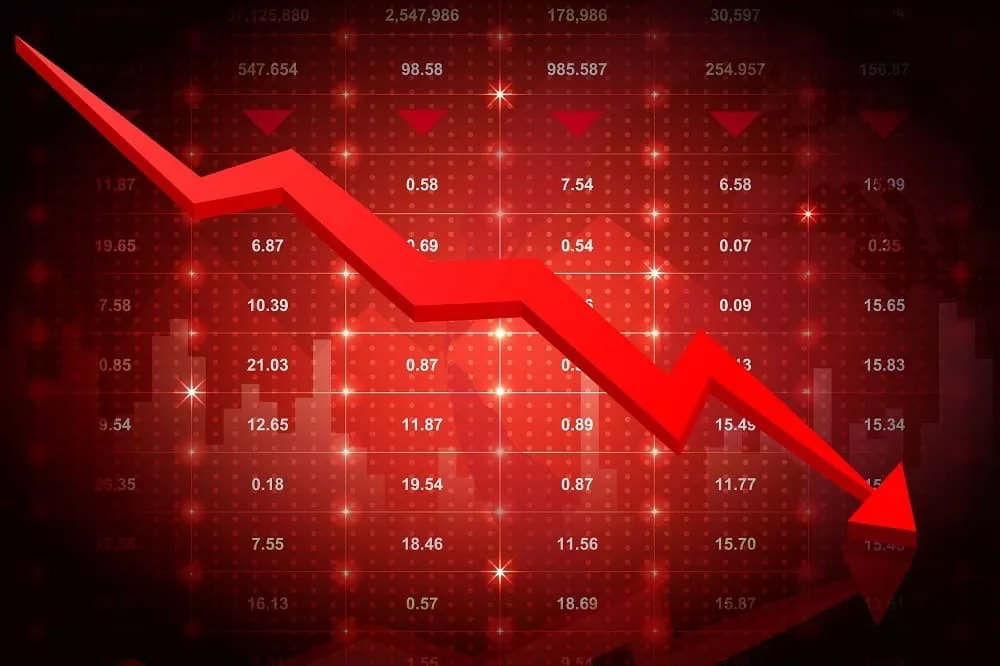Asian stocks faced declines after President Donald Trump’s actions to limit Chinese investments and proceed with tariffs on Canada and Mexico caused investors to scale back on risky bets. This negative sentiment was compounded by a drop in U.S. stocks at the end of trading.
Chinese and Hong Kong Stocks Hit Hard
Equity indexes in Hong Kong and mainland China fell at the opening, and a regional gauge of shares dropped for the second consecutive day. In early Asian trading, the yield on 10-year Treasuries slid by two basis points to 4.4%, while gold prices surged to a record high as investors sought safe-haven assets.
Trump’s Directive to Curb Chinese Investment
The market turmoil followed Trump’s national security presidential memorandum, which orders a key government committee to restrict Chinese investments in U.S. tech, energy, and other strategic sectors. This has the potential to reverse a recent rally in Chinese technology stocks, which had been boosted by optimism surrounding DeepSeek and President Xi Jinping’s meetings with corporate leaders, including Alibaba’s Jack Ma.
Trump’s plan aims to use “all necessary legal instruments” to prevent Chinese affiliates from investing in critical U.S. industries such as technology, healthcare, agriculture, energy, and raw materials. The directive will likely lead to the more aggressive use of the Committee on Foreign Investment in the United States (CFIUS), which reviews foreign acquisitions of U.S. companies.
Chinese Shares and Alibaba Hit Hard
As a result of Trump’s memorandum, Chinese shares in Hong Kong fell 2.8%, with Alibaba Group Holding Ltd. seeing a sharp 7.9% drop in Hong Kong trading. The company’s American depositary receipts also plummeted 10%, marking its steepest decline since October 2022.
Japanese Stocks Rally
In contrast, Japanese stocks saw gains. Trading houses, including Mitsubishi Corp. and Marubeni Corp., rallied after Berkshire Hathaway Inc. indicated it was looking to increase its stake in these companies, as revealed in its annual letter to shareholders on Saturday.
South Korea’s Rate Cut and Market Reactions
Elsewhere in Asia, the Bank of Korea cut its seven-day repurchase rate by 0.25 percentage points to 2.75% on Tuesday, a widely anticipated move.
US Market Sentiment
In the U.S., markets showed mixed performance. The S&P 500 dropped by 0.5%, while the Nasdaq 100 lost over 1%, and the Dow Jones Industrial Average wavered. Notably, hedge funds reduced their net exposure to the “Magnificent Seven” stocks, and Nvidia Corp. lost 3.1% ahead of its earnings report.
This shift toward volatility suggests that investors expect market turbulence in the coming weeks. Nvidia’s earnings report on Wednesday could serve as a catalyst for further market moves, and if the company delivers strong results, it may provide upward momentum for stocks.
Broader Market Outlook
Despite the recent sell-off, analysts believe the broader macroeconomic backdrop remains strong. “The market is churning sideways, driven by investor confusion and seasonal weakness in February. However, robust earnings and healthy fund flows argue for a breakout to the upside once momentum returns,” said Mark Hackett at Nationwide.
Geopolitical Uncertainties Affect Oil and Gold
In other markets, oil prices edged higher amidst geopolitical uncertainties, including peace talks between Russia and Ukraine and potential changes in Iraqi crude production. Meanwhile, gold held near its latest record high as exchange-traded funds backed by the precious metal drew increased interest from investors.
Related topics:
























